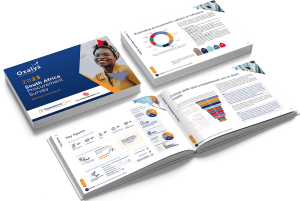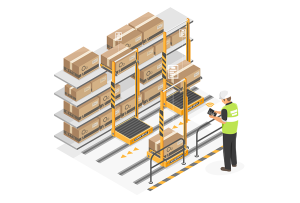 A recent study conducted across international divisions of Mondi Ltd found that the South African-listed pulp and paper giant does not fully utilise, compared with best practice, enterprise resource planning (ERP) solutions and electronic procurement (e-procurement). In fact, Mondi South African Division meets only 11 out of the 28 recommended best practice requirements (41%) in the procure-to-pay (P2P) process.
A recent study conducted across international divisions of Mondi Ltd found that the South African-listed pulp and paper giant does not fully utilise, compared with best practice, enterprise resource planning (ERP) solutions and electronic procurement (e-procurement). In fact, Mondi South African Division meets only 11 out of the 28 recommended best practice requirements (41%) in the procure-to-pay (P2P) process.
Based on the study, it was recommended that Mondi standardises the utilisation of ERP and e-procurement solutions as far as possible throughout all divisions at a global level, which encompasses its operations in 42 countries and 33 000 employees.
Using technology in the P2P cycle
The P2P cycle begins with the ‘need identification’ and ‘request for quotation’ phases, includes the contract management processes and ends with payment to suppliers and supplier evaluation. Traditional, paper-based P2P systems are time consuming, labour intensive and often result in bottlenecks as well as duplicated efforts.
To varying degrees, information technology can be applied to each stage of the P2P cycle and, therefore, each process has the potential to be automated. Organisations that employ e-procurement technologies require less paperwork, resulting in fewer mistakes and, therefore, a more efficient procurement process. This results in a shorter cycle time, increased flexibility and more up-to-date information when placing orders.
Consequently, it is widely accepted that a business can improve the operation of its P2P cycle and accrue strategic benefits using e-procurement, but in order to improve efficiency and effectiveness the e-procurement solution must be fully integrated with the company’s ERP system.
Recognition of this tremendous potential of e-procurement has stimulated major ERP software providers to add e-procurement (and supply chain management) capabilities to their systems. With integrated end-to-end e-procurement, the entire process is workflow driven, each step flows into the next; no data has to be re-keyed and no time or productivity is lost.
How does Mondi compare to best practice?
 To ascertain the effectiveness of the processes at Mondi, they were compared with best practice across the P2P cycle (see ‘Best Practice Benchmarks’ alongside). Data was collected to determine whether ERP and e-procurement were effectively used across all stages of Mondi’s P2P cycle, including request for quotations; vendor master; purchasing processes; invoicing and payments; contracts; and audit history and reporting.
To ascertain the effectiveness of the processes at Mondi, they were compared with best practice across the P2P cycle (see ‘Best Practice Benchmarks’ alongside). Data was collected to determine whether ERP and e-procurement were effectively used across all stages of Mondi’s P2P cycle, including request for quotations; vendor master; purchasing processes; invoicing and payments; contracts; and audit history and reporting.
It was found that Mondi in South Africa has a total spend under management of 90% and is therefore aligned with the 88% achieved by best-in-class companies.
P2P process activities in which Mondi compared well with best practice:
• Payment terms and runs.
• Completion of purchase requisitions electronically.
• Management of the approval process.
• Automatic generation of purchase orders.
• Duplicate invoice verification.
• Use of supplier catalogues.
• Automatic approval of requisitions.
• Automatic matching of invoices.
• Electronic delivery of invoices.
Areas in which Mondi is not in line with best practice: significantly, Mondi does not use purchasing cards, nor an e-auction facility.
It was concluded that Mondi can look at optimising its practices and to continuing further development.
Limited research has been carried out to date about the success, or otherwise, of e-procurement implementation in South Africa. Consequently, the study sought to add to the body of knowledge through it research objectives, by compiling a comprehensive checklist of current recommended best-practice guidelines used by other companies to assess the effectiveness of their P2P cycles.
Another way to promote the effective use of ERP and e-procurement, would be to do a ‘before and after’ study of companies that have implemented recommended best practice guidelines, with a particular focus on impact on profitability and business efficiency.
 Adapted from the document A comparative study of the effective use of ERPs and e-procurement across the procure-to-pay cycle within selected divisional units of Mondi.
Adapted from the document A comparative study of the effective use of ERPs and e-procurement across the procure-to-pay cycle within selected divisional units of Mondi.
Shakira Gandhi, Head of Procurement: MondiGroup, and Prof Douglas Boateng
Shakiragandhi@gmail.com and dboateng@panavest.com


























